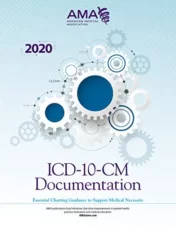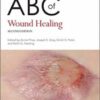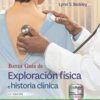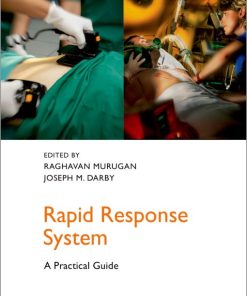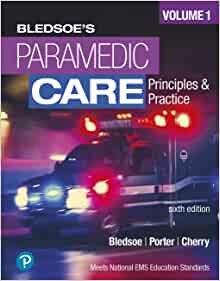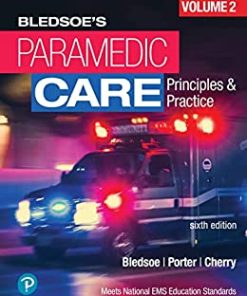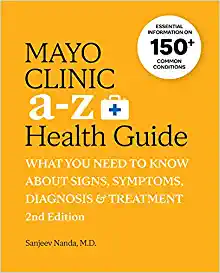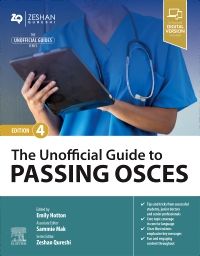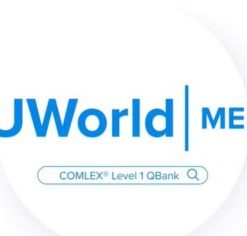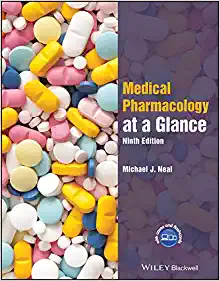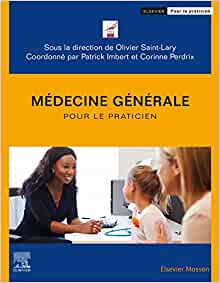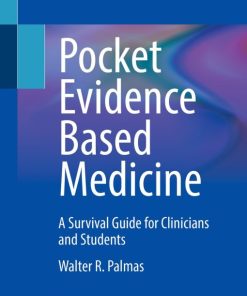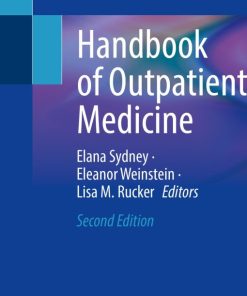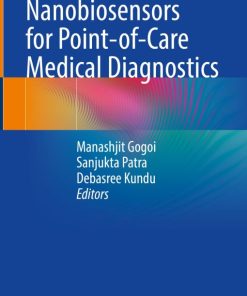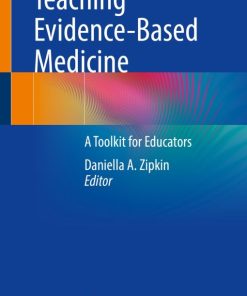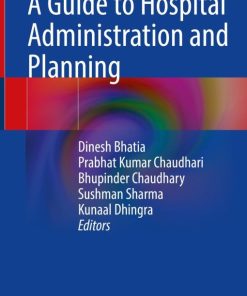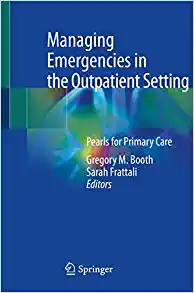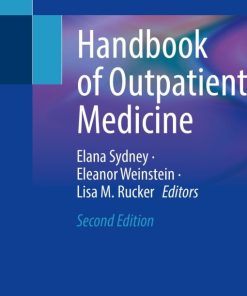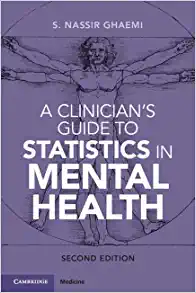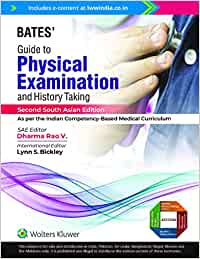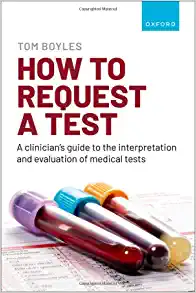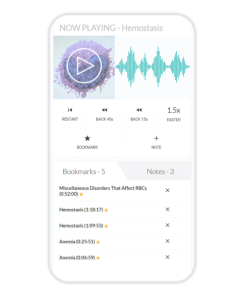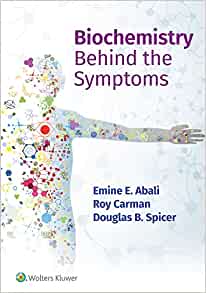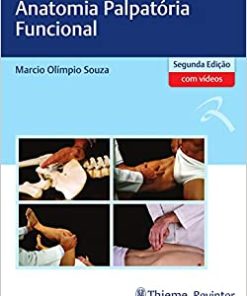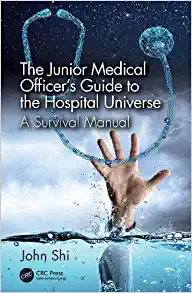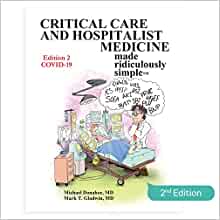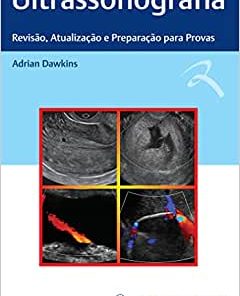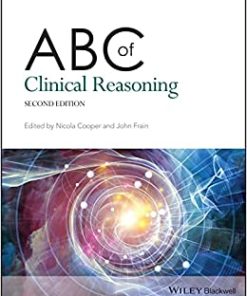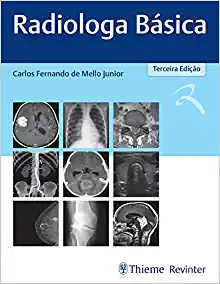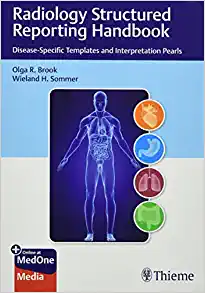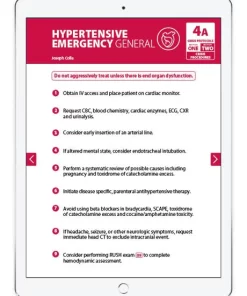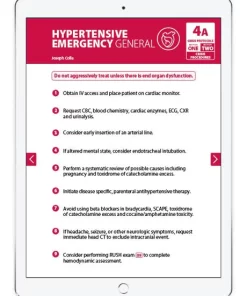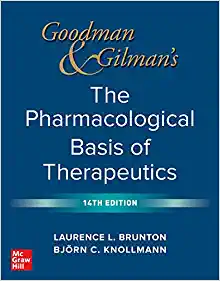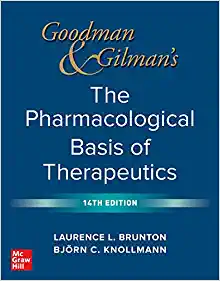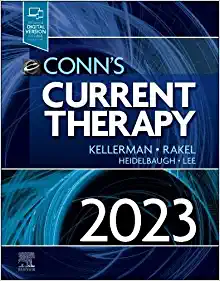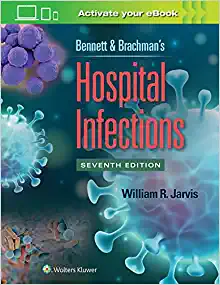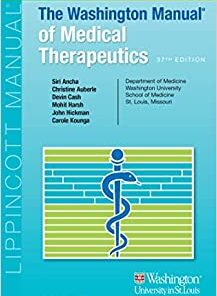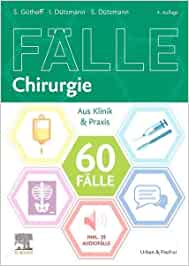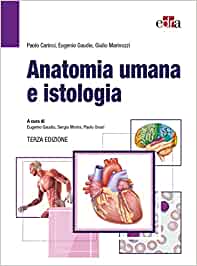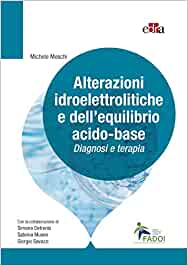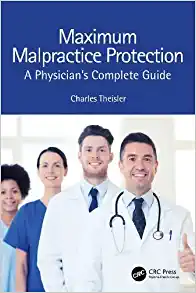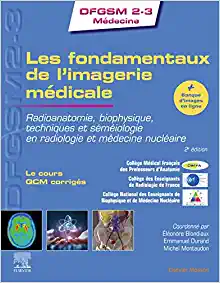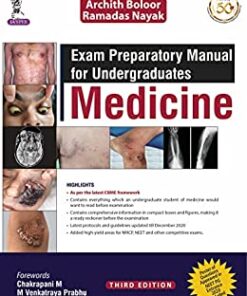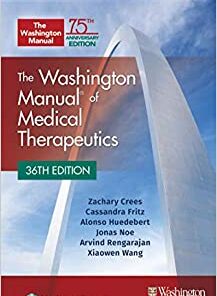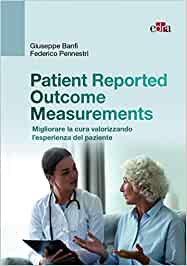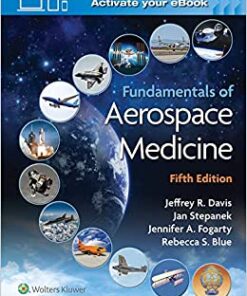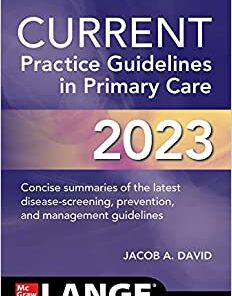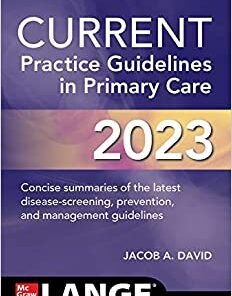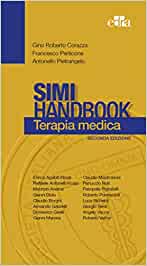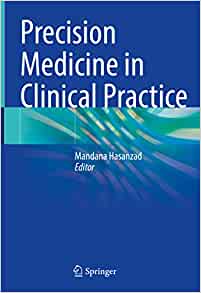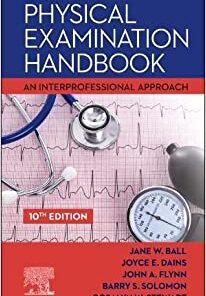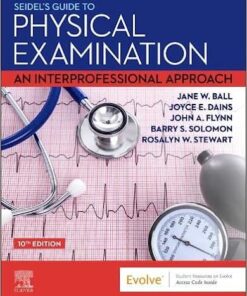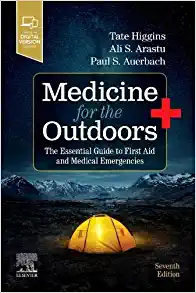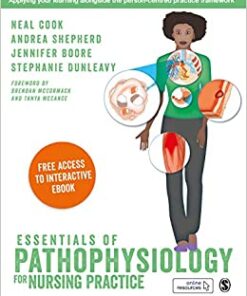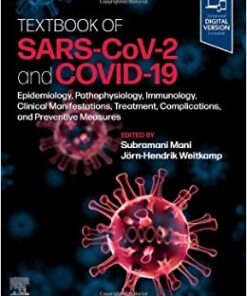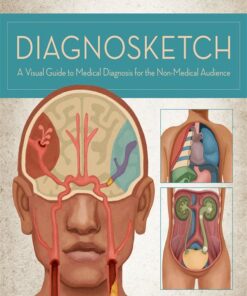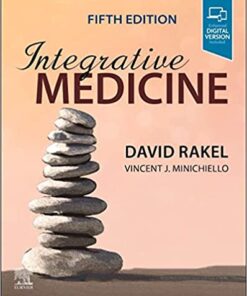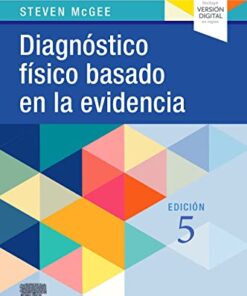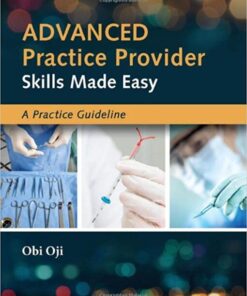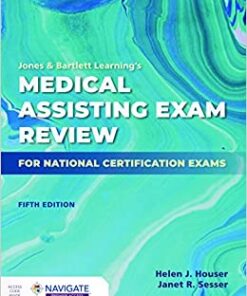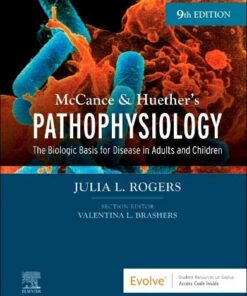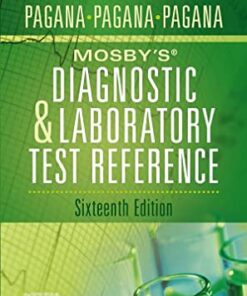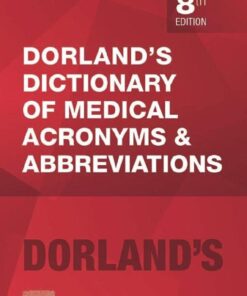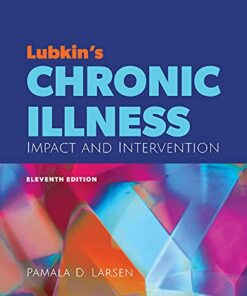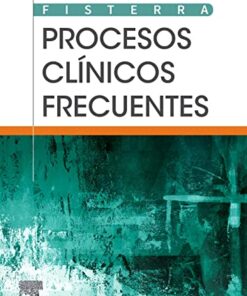ICD-10-CM Documentation 2020: Essential Charting Guidance to Support Medical Necessity 1st Ed 2019 Original pdf
$8
ICD-10-CM Documentation 2020: Essential Charting Guidance to Support Medical Necessity 1st Ed 2019 Original pdf
ICD-10-CM requires very specific documentation to correctly choose diagnostic codes, a skill that both coders and physicians must master to code successfully. Moving beyond the transition to ICD-10, the new edition focuses on the key role proper documentation plays in supporting medical necessity.
ICD-10-CM Documentation 2020 brings coders and physicians together to ensure documentation success, identifying all ICD-10-CM documentation requirements using detailed checklists.
Designed for use alongside an ICD-10-CM codebook, this comprehensive training guide provides all the tools necessary to conduct an effective documentation analysis and to create a corrective action plan, making it ideal for both non-facility and facility coders. The chapter organization mirrors the structure of codebooks and all guidance is geared toward the process of code decision-making. In addition, exercises and quizzes test knowledge and understanding of key points throughout the book.
FEATURES AND BENEFITS
· New codes, revisions and deletions, plus guideline updates for 2020 — final 2020 changes will be integrated into every pertinent chapter, checklist, scenario and quiz
· Detailed, full-page anatomy illustrations — for better interpretation of clinical notes
· Checklists to identify documentation elements — for categories, subcategories and codes
· Checklists for specialty-specific documentation — to review current records and identify any documentation deficiencies
· ICD-10-CM documentation scenarios — display documentation requirements with important elements highlighted
· CDI checklists — identify common documentation deficiencies faced when coding COPD, Pneumonia and Sepsis/SIRS
· Glossary of Medical Terminology
· Scenarios — illustrate required documentation in ICD-10-CM with additional ICD-10 requirements highlighted so readers can understand where the documentation will appear in common coding scenarios based on real-life health care encounters
· End of chapter quizzes — dive into coding practice with the conditions discussed in each chapter
Related Products
GENERAL MEDICINE BOOKS
GENERAL MEDICINE BOOKS
Paramedic Care: Principles and Practice, Volume 1 (Original PDF from Publisher)
GENERAL MEDICINE BOOKS
Paramedic Care: Principles and Practice, Volume 2 (Original PDF from Publisher)
GENERAL MEDICINE BOOKS
The Unofficial Guide to Passing OSCEs, 4th edition (Original PDF from Publisher)
GENERAL MEDICINE BOOKS
Uworld USMLE COMLEX Level 1 Qbank, Updated Jan 2023, System- and Subject-wise (PDF)
GENERAL MEDICINE BOOKS
Uworld USMLE Step 1 Qbank, Updated Jan 2023, System- and Subject-wise (PDF)
GENERAL MEDICINE BOOKS
Neinstein’s Adolescent and Young Adult Health Care: A Practical Guide, 7th Edition (EPUB)
GENERAL MEDICINE BOOKS
Medical Pharmacology at a Glance, 9th Edition (Original PDF from Publisher)
GENERAL MEDICINE BOOKS
Médecine générale pour le praticien (Original PDF from Publisher)
GENERAL MEDICINE BOOKS
Pocket Evidence Based Medicine (Original PDF from Publisher)
GENERAL MEDICINE BOOKS
Handbook of Outpatient Medicine, 2nd Edition (Original PDF from Publisher)
GENERAL MEDICINE BOOKS
GENERAL MEDICINE BOOKS
A Guide to Hospital Administration and Planning (Original PDF from Publisher)
GENERAL MEDICINE BOOKS
Nanobiosensors for point-of-care medical diagnostics (Original PDF from Publisher)
GENERAL MEDICINE BOOKS
Teaching Evidence-Based Medicine (Original PDF from Publisher)
GENERAL MEDICINE BOOKS
GENERAL MEDICINE BOOKS
250 Exames De Laboratorio. Prescricao E Interpretação, 10th Edition (Original PDF from Publisher)
GENERAL MEDICINE BOOKS
GENERAL MEDICINE BOOKS
A Clinician’s Guide to Statistics in Mental Health 2e (Original PDF from Publisher)
GENERAL MEDICINE BOOKS
Magill’s Medical Guide, 9th edition (Original PDF from Publisher)
GENERAL MEDICINE BOOKS
First Aid for the USMLE Step 1 2023, Thirty Third Edition (Original PDF from Publisher)
GENERAL MEDICINE BOOKS
GENERAL MEDICINE BOOKS
GENERAL MEDICINE BOOKS
Bates’ Guide to Physical Examination and History Taking, 2nd (SAE) (Original PDF from Publisher)
GENERAL MEDICINE BOOKS
UCSF CME COVID-19 for Clinicians: Up-to-the-Minute Advances 2022 (CME VIDEOS)
GENERAL MEDICINE BOOKS
MedStudy 20th Edition Internal Medicine Core Audio Pearls 2022 (Audios)
GENERAL MEDICINE BOOKS
GENERAL MEDICINE BOOKS
Anatomia Palpatória Funcional, 2nd Edition (Original PDF from Publisher)
GENERAL MEDICINE BOOKS
Ultrassonografia: Revisão, Atualização e Preparação para Provas (EPUB)
GENERAL MEDICINE BOOKS
Uworld COMLEX Level 1 (Step 1 + OMT 1), 3-month Subscription, Full Guarantee (Shared account)
GENERAL MEDICINE BOOKS
Uworld COMLEX Level 1 (Step 1 + OMT 1), 3-month Subscription, 1-month Guarantee (Shared account)
GENERAL MEDICINE BOOKS
Uworld USMLE Step 1, 3-month Subscription, Full Guarantee (Shared account)
GENERAL MEDICINE BOOKS
Uworld USMLE Step 1, 3-month Subscription, 1-month Guarantee (Shared account)
GENERAL MEDICINE BOOKS
ABC of Clinical Reasoning (ABC Series), 2nd Edition (Original PDF from Publisher)
GENERAL MEDICINE BOOKS
Radiologia Básica Junior, Carlos Fernando de Mello, 3ª edição (Original PDF from Publisher)
GENERAL MEDICINE BOOKS
The Resuscitation Crisis Manual (The RCM) eBook (Original PDF from Publisher)
GENERAL MEDICINE BOOKS
GENERAL MEDICINE BOOKS
Goodman and Gilman’s The Pharmacological Basis of Therapeutics, 14th Edition (EPUB)
GENERAL MEDICINE BOOKS
GENERAL MEDICINE BOOKS
Bennett & Brachman’s Hospital Infections, 7th Edition (EPUB3)
GENERAL MEDICINE BOOKS
The Washington Manual of Medical Therapeutics, 37th Edition (EPUB3)
GENERAL MEDICINE BOOKS
GENERAL MEDICINE BOOKS
GENERAL MEDICINE BOOKS
Alterazioni idroelettrolitiche e dell’equilibrio acido-base. Diagnosi e terapia (EPUB3)
GENERAL MEDICINE BOOKS
Maximum Malpractice Protection: A Physician’s Complete Guide (Original PDF from Publisher)
GENERAL MEDICINE BOOKS
Exam Preparatory Manual For Undergraduates Medicine, 3rd Edition (Original PDF from Publisher)
GENERAL MEDICINE BOOKS
The Washington Manual of Medical Therapeutics, 36th Edition (Original PDF from Publisher)
GENERAL MEDICINE BOOKS
Patient-Reported Outcome Measures. Migliorare la cura valorizzando l’esperienza del paziente (EPUB3)
GENERAL MEDICINE BOOKS
GENERAL MEDICINE BOOKS
CURRENT Practice Guidelines in Primary Care 2023 (Original PDF from Publisher)
GENERAL MEDICINE BOOKS
GENERAL MEDICINE BOOKS
GENERAL MEDICINE BOOKS
Precision Medicine in Clinical Practice (Original PDF from Publisher)
GENERAL MEDICINE BOOKS
Essentials of Pathophysiology for Nursing Practice (Original PDF from Publisher)
GENERAL MEDICINE BOOKS
GENERAL MEDICINE BOOKS
Integrative Medicine, 5th edition (Original PDF from Publisher)
GENERAL MEDICINE BOOKS
Diagnóstico físico basado en la evidencia, 5 Edición (Original PDF from Publisher)
GENERAL MEDICINE BOOKS
Advanced Practice Provider Skills Made Easy: A Practice Guideline (Original PDF from Publisher)
GENERAL MEDICINE BOOKS
Mosby’s® Diagnostic and Laboratory Test Reference, 16th Edition (Original PDF from Publisher)
GENERAL MEDICINE BOOKS
Lubkin’s Chronic Illness: Impact and Intervention, 11th Edition (Original PDF from Publisher)
GENERAL MEDICINE BOOKS
GENERAL MEDICINE BOOKS
GENERAL MEDICINE BOOKS
ICD-10-CM/PCS Coding: Theory and Practice, 2023/2024 Edition 2022 Original PDF
GENERAL MEDICINE BOOKS
Introduction to Language Development, 3rd Edition 2022 Original PDF
GENERAL MEDICINE BOOKS
SERS for Point-of-care and Clinical Applications 2022 Original PDF
GENERAL MEDICINE BOOKS
SERS for Point-of-care and Clinical Applications 2022 epub+converted pdf
GENERAL MEDICINE BOOKS
Clinical Decision Making for Improving Prognosis 2022 epub+converted pdf
GENERAL MEDICINE BOOKS
Clinical Decision Making for Improving Prognosis 2022 Original PDF
GENERAL MEDICINE BOOKS
GENERAL MEDICINE BOOKS
GENERAL MEDICINE BOOKS
Acquiring Medical Language, 2nd Edition 2018 epub+converted pdf
GENERAL MEDICINE BOOKS
Acquiring Medical Language, 3rd Edition 2022 epub+converted pdf
GENERAL MEDICINE BOOKS
GENERAL MEDICINE BOOKS
Phlebotomy: Worktext and Procedures Manual, 5th Edition 2019 Original PDF
GENERAL MEDICINE BOOKS
Uworld ABIM Qbank 2022 (Subject- and System-wise, Updated September 2022) (PDF)
GENERAL MEDICINE BOOKS
Tornado of Life: A Doctor’s Journey through Constraints and Creativity in the ER 2022 Original PDF
GENERAL MEDICINE BOOKS
Pierson and Fairchild’s Principles & Techniques of Patient Care, 7th Edition 2022 Original PDF
GENERAL MEDICINE BOOKS
The Health Care Professional’s Guide to Cultural Competence, 2nd Edition 2022 Original PDF

